Key Takeaways
1. Our genome is a book of life, written in digital code
The human genome is a book ... There are twenty-three chapters, called CHROMOSOMES. Each chapter contains several thousand stories, called GENES.
Digital language of life. The genome is fundamentally an information system, encoded in the four-letter alphabet of DNA (A, C, G, T). This digital code contains the instructions for building and operating a human being. The genome's structure resembles a book:
- 23 chromosomes ("chapters")
- 20,000-25,000 genes ("stories")
- 3 billion DNA base pairs ("letters")
Like computer code, the genome can be read, copied, and even edited. This digital nature allows for precise replication and transmission of genetic information across generations.
2. We share a common ancestor with all living things
Flies and people are just variations on a theme of how to build a body that was laid down in some worm-like creature in the Cambrian period.
Unity of life. All life on Earth shares a common ancestor and uses the same genetic code. This explains why:
- Many genes are conserved across widely different species
- We can study fruit flies or mice to learn about human biology
- Genetic engineering can transfer genes between species
The similarities in genetic mechanisms across life forms provide compelling evidence for evolution and our deep connection to all living things.
3. Genes are not just for diseases, but shape our entire biology
GENES ARE NOT THERE TO CAUSE DISEASES.
Genes as instructions. While we often focus on disease-causing mutations, genes primarily encode the instructions for normal biological functions:
- Building and maintaining our bodies
- Regulating physiological processes
- Influencing behavior and cognitive traits
Genes associated with diseases usually represent variants of normal genes that have essential functions. Understanding these normal functions is crucial for advancing biology and medicine.
4. Nature and nurture interact in complex ways to influence our traits
Far from us lying at the mercy of our omnipotent genes, it is often our genes that lie at the mercy of us.
Gene-environment interplay. Our traits result from complex interactions between our genes and the environment:
- Genes can influence how we respond to environmental factors
- Environmental factors can influence gene expression
- Some genes affect our propensity to seek out certain environments
This interplay means that neither genes nor environment alone determine our fate. Understanding these interactions is key to unraveling the complexities of human biology and behavior.
5. The human genome contains remnants of our evolutionary past
We are full of digital chain letters and warnings about marmalade.
Genomic fossils. Our genome is a historical document, containing:
- Remnants of ancient viruses
- Duplicated genes
- "Selfish" DNA elements that replicate themselves
These genomic fossils provide insights into our evolutionary history and the dynamic nature of genomes. They also highlight that not all DNA has a current functional purpose.
6. Genetic knowledge brings both promise and ethical challenges
Little wonder that in America health-insurance companies are already showing interest in genetic tests for Alzheimer's, a disease that can be very costly for them.
Double-edged sword. Advances in genetic knowledge offer great potential for medicine but also raise ethical concerns:
- Potential for personalized medicine and disease prevention
- Risk of genetic discrimination in insurance or employment
- Ethical dilemmas in reproductive choices and genetic engineering
Balancing the benefits of genetic knowledge with ethical considerations is a crucial challenge for society.
7. Free will exists within the constraints of our genetic determinism
Freedom lies in expressing your own determinism, not somebody else's.
Reconciling determinism and free will. While our genes influence our traits and tendencies, they don't rigidly determine our choices:
- Genes create propensities, not fixed destinies
- Our conscious decisions can override genetic influences
- Understanding our genetic predispositions can empower us to make informed choices
This perspective allows us to embrace both the reality of genetic influences and the importance of personal responsibility and choice.
Last updated:
FAQ
What's Genome: The Autobiography of a Species in 23 Chapters about?
- Exploration of the genome: The book delves into the human genome, explaining how genes influence various aspects of human biology and behavior.
- Chromosome-by-chromosome narrative: Matt Ridley examines each chromosome, linking them to themes of human nature and history, providing a comprehensive view of genetics.
- Interdisciplinary insights: It combines genetics, anthropology, psychology, and philosophy to show how our genetic makeup shapes who we are.
Why should I read Genome: The Autobiography of a Species in 23 Chapters?
- Understanding genetics' impact: The book helps readers grasp how genetics influences health, behavior, and identity, essential for understanding ourselves.
- Engaging storytelling: Ridley’s narrative style makes complex scientific concepts accessible and engaging, using anecdotes and historical context.
- Timely relevance: It addresses contemporary issues in genetics, such as genetic engineering and ethical implications, making it a thought-provoking read.
What are the key takeaways of Genome: The Autobiography of a Species in 23 Chapters?
- Genes shape our lives: Genes play a crucial role in determining health, personality, and behavior, illustrated through examples from different chromosomes.
- Complexity of inheritance: Traits are influenced by multiple genes and environmental factors, challenging simplistic notions of genetic determinism.
- Interconnectedness of life: The book underscores that all life is interconnected through shared genetic codes, emphasizing common ancestry.
What are the best quotes from Genome: The Autobiography of a Species in 23 Chapters and what do they mean?
- “We are living through the greatest intellectual moment in history.”: Reflects the transformative power of genetic knowledge, revolutionizing fields like medicine.
- “The genome is a book that wrote itself.”: Illustrates the dynamic nature of the genome, evolving over time through mutations and natural selection.
- “Life consists of the interplay of two kinds of chemicals: proteins and DNA.”: Highlights the fundamental relationship between genes and proteins in biological processes.
How does Genome: The Autobiography of a Species in 23 Chapters explain the relationship between genes and diseases?
- Genes as disease contributors: Certain genes can predispose individuals to specific diseases, crucial for developing effective treatments.
- Complexity of genetic diseases: Many diseases are influenced by multiple genes and environmental factors, requiring a nuanced understanding.
- Role of genetic research: Continued research into the human genome is advocated to uncover the genetic basis of diseases for better prevention and treatment.
What is the significance of chromosome 2 in Genome: The Autobiography of a Species in 23 Chapters?
- Fusion of ape chromosomes: Chromosome 2 is formed from the fusion of two ape chromosomes, highlighting evolutionary relationships.
- Implications for human evolution: This fusion suggests a significant evolutionary event contributing to modern human development.
- Understanding human uniqueness: Examining chromosome 2 explores genetic traits distinguishing humans from other primates.
How does Genome: The Autobiography of a Species in 23 Chapters address the concept of free will?
- Genetic influence on behavior: Genes can shape behaviors and personality traits, raising questions about the extent of free will.
- Interplay of nature and nurture: Both genetic and environmental factors shape behavior, essential for understanding free will.
- Philosophical implications: Genetic knowledge can inform our understanding of human agency, leading to greater self-awareness.
What role do environmental factors play in Genome: The Autobiography of a Species in 23 Chapters?
- Interaction with genetics: Environmental factors interact with genetic predispositions to shape traits and health outcomes.
- Examples of environmental influence: Lifestyle choices can impact gene expression and health, highlighting the importance of both genetics and environment.
- Dynamic nature of the genome: The genome can be influenced by environmental factors throughout life, underscoring genetic inheritance complexity.
How does Genome: The Autobiography of a Species in 23 Chapters explain the concept of eugenics?
- Historical context: The history of eugenics and its association with genetic determinism is discussed, highlighting dangers of misapplying genetic knowledge.
- Modern implications: Warns against potential misuse of genetic information, advocating for ethical considerations in genetic research.
- Call for responsible science: Emphasizes the need for responsible scientific inquiry that respects individual rights and diversity.
What insights does Genome: The Autobiography of a Species in 23 Chapters provide about human history?
- Genetic record of migration: The human genome contains clues about ancestors’ migrations and adaptations, revealing patterns of human history.
- Connection to ancient diseases: Historical diseases have shaped genetic makeup, influencing traits like resistance to infections.
- Interconnectedness of all life: The genome serves as a record of shared ancestry, fostering appreciation for biodiversity and conservation.
What is the significance of Hox genes in Genome: The Autobiography of a Species in 23 Chapters?
- Role in body plan: Hox genes determine the layout of an organism's body during embryonic development.
- Conservation across species: Remarkably similar in different species, indicating a common evolutionary ancestor.
- Implications for understanding evolution: Provides insights into how complex body structures evolved, revealing genetic diversity basis.
How does Genome: The Autobiography of a Species in 23 Chapters relate to the future of genetic research?
- Promise of personalized medicine: Genetic research could lead to personalized medical treatments tailored to individual genetic profiles.
- Ethical considerations: Raises important ethical questions about genetic engineering and implications of manipulating the human genome.
- Ongoing discoveries: The field of genetics is rapidly evolving, with new discoveries continually reshaping our understanding of biology.
Review Summary
Genome: The Autobiography of a Species in 23 Chapters received mostly positive reviews for its accessible explanation of genetics and engaging writing style. Readers appreciated Ridley's approach of using each chromosome to explore different aspects of human biology and society. Some found parts outdated or criticized Ridley's personal opinions, but many still recommended it as an informative introduction to genetics. The book's exploration of controversial topics like intelligence and eugenics sparked discussion among readers.
Similar Books




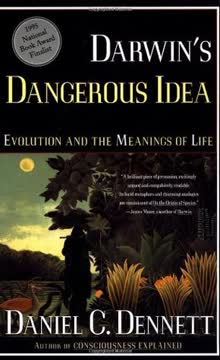
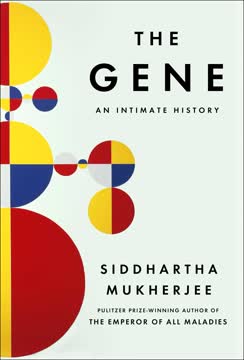

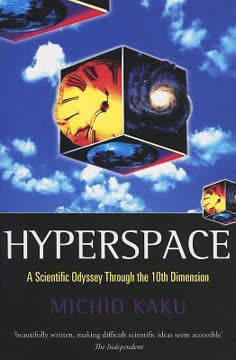
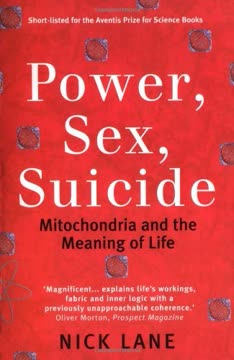
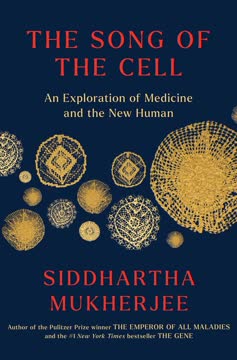
Download PDF
Download EPUB
.epub digital book format is ideal for reading ebooks on phones, tablets, and e-readers.










